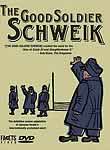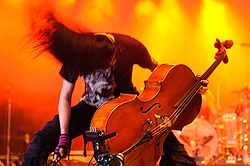Hammerfall: Blood Bound
Countdown, descending down to zero
Bursting into flames
Can’t you see the coming of a hero
On this enchanting day
So stand up and be counted
In the solar glance in the desert sand
No longer the hunted
United we are till the day we fall
A chain unbreakable
Every link is allied to our mighty vow
We’re Blood Bound – We aim for the sun
The luminous moon will take us high over ground
We’re Blood Bound – Collecting the stars
We hold a power that is greater than all
We’re Blood Bound
Watch out, the heathens all around us
Always watch your back
We’ve got a lust for freedom
Whatever they say, we know we’ll stay
We are indestructible
And no matter what happens, we will rise above
We’re Blood Bound – We aim for the sun
The luminous moon will take us high over ground
We’re Blood Bound – Collecting the stars
We hold a power that is greater than all
We’re Blood Bound
Look into my eyes
Tell me what is hidden deep inside
Chains about to break
It’s the everlasting freedom for us all
We’re Blood Bound – We aim for the sun
The luminous moon will take us high over ground
We’re Blood Bound – Collecting the stars
We hold a power together
We’re Blood Bound – We aim for the sun
The luminous moon will take us high over ground
We’re Blood Bound – Collecting the stars
We hold a power together
We’re Blood Bound – We aim for the sun
The luminous moon will take us high over ground
We’re Blood Bound – Collecting the stars
We hold a power together
Blood bound, power forever, Blood Bound, power
We’re Blood Bound
Apocalyptica
Finnish symphonic metal band from Helsinki, Finland, formed in 1993. The band is composed of classically trained cellists and, since 2003, a drummer. Three of the cellists are graduates of the Sibelius Academy in Helsinki, Finland. Their music features elements from classical music and neo-classical metal, to symphonic metal and gothic metal.
“Grace”
The Good Soldier Švejk by Jaroslav Hašek
 The story begins in Prague with news of the assassination in Sarajevo that precipitates World War I.
The story begins in Prague with news of the assassination in Sarajevo that precipitates World War I.
Švejk displays such enthusiasm about faithfully serving the Austrian Emperor in battle that no one can decide whether he is merely an imbecile or is craftily undermining the war effort. However, he is arrested by a member of the secret police, Bretschneider, after making some politically sensitive remarks, and is sent to prison. After being certified insane he is finally transferred to a madhouse, before being ejected.
Švejk gets his charwoman to wheel him (he claims to be suffering from rheumatism) to the recruitment offices in Prague, where his apparent zeal causes a minor sensation. Unfortunately, he is transferred to a hospital for malingerers because of his rheumatism. He finally joins the army as batman to army chaplain Otto Katz; Katz loses him at cards to Lieutenant Lukáš, whose batman he then becomes. Lukáš is then posted with his march battalion to barracks in České Budějovice, in Southern Bohemia, preparatory to being sent to the front. After missing the train to Budějovice, Švejk embarks on a long anabasis on foot around Southern Bohemia in a vain attempt to find Budějovice, before being arrested as a possible spy and deserter (a charge he strenuously denies) and escorted to his regiment. He is then promoted to company orderly.
The unit embarks on a long train journey towards Galicia and the Eastern Front. Stopping in a town on the border between Austria and Hungary, Švejk is again arrested, this time for causing an affray involving a respectable Hungarian citizen and engaging in a street fight. Before reaching the front line, Švejk is taken prisoner by his own side as a suspected Russian deserter, after arriving at a lake and trying on an abandoned Russian uniform. Narrowly avoiding execution, he manages to rejoin his unit. The unfinished novel breaks off abruptly before Švejk has a chance to be involved in any combat or enter the trenches, though it appears Hašek may have conceived that the characters would have continued the war in a POW camp, much as he had done.
The book also includes a very large number of anecdotes told by Švejk (usually either to deflect the attentions of an authority figure, or to insult them in a concealed manner) which are not directly related to the plot.
